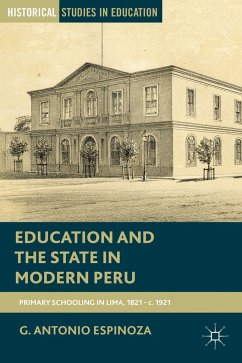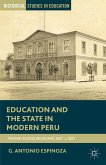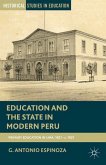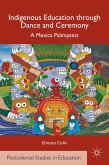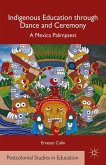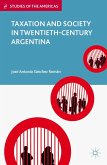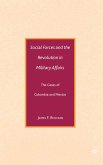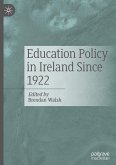Espinoza's work illuminates how education was the site of ideological and political struggle in Peru during its early years as an independent state. Spanning 100 years and discussing both urban and rural education, it shows how school funding, curricula, and governance became part of the cultural process of state-building in Peru.
To come
"Espinoza places patrimonialism and patronage at the center of elite efforts to establish a state-run education system, and simultaneously demonstrates how trends in education reflected broader dynamics of Peruvian nation-building. The work's century-long time frame allows Espinoza to effectively trace the shaky transition from colonialism to independence, the vicissitudes of creating a modern society and economy, and the eventual stabilization of an industrializing nation in the twentieth century . . . This book is an important contribution to both the history of education in Latin America and to the history of early national Peru." - The American Historical Review
"In this carefully researched book, Antonio Espinoza takes advantage of the insights of the most recent literature on the history of education and on state formation to provide a splendid introduction to the foundational stages of the Peruvian educational system." - Héctor Lindo-Fuentes, Associate Chair and Professor, Department of History, Fordham University, USA
"Based on extensive research and using a sophisticated conceptual framework, this impressive monograph successfully demonstrates the centrality of education within efforts at nation- and state-building in nineteenth-century Peru and the ambiguities that shaped its implementation in the context of a highly authoritarian and exclusionary society." - Carlos Aguirre, Professor, Department of History, Director, Latin American StudiesProgram, University of Oregon, USA
"In this carefully researched book, Antonio Espinoza takes advantage of the insights of the most recent literature on the history of education and on state formation to provide a splendid introduction to the foundational stages of the Peruvian educational system." - Héctor Lindo-Fuentes, Associate Chair and Professor, Department of History, Fordham University, USA
"Based on extensive research and using a sophisticated conceptual framework, this impressive monograph successfully demonstrates the centrality of education within efforts at nation- and state-building in nineteenth-century Peru and the ambiguities that shaped its implementation in the context of a highly authoritarian and exclusionary society." - Carlos Aguirre, Professor, Department of History, Director, Latin American StudiesProgram, University of Oregon, USA

